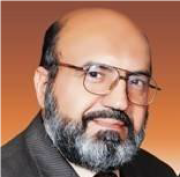Keynote Speaker

Elio Tuci
Bio
Elio Tuci is Associate Professor in the Department of Computer Science, University of Namur, Belgium. From September 2016 to August 2018 he has been a Senior Lecturer in the Department of Computer Science, Middlesex University, London, UK From September 2010 to September 2016, he has been a Lecturer in the Department of Computer Science, Aberystwyth University (UK), where he was a member of the Intelligent Robotics Group. In 2003, he received a PhD in Computer Science and Artificial Intelligence from the University of Sussex, Brighton, UK. In 1996, he graduated in Experimental Psychology from the University of Rome "Sapienza", Rome, Italy.
His research interests fall into the interdisciplinary domain of bio-inspired robotics and computational intelligence. He draws inspiration from nature to design control mechanisms to allow artificial agents to operate in a complex environment and to learn from their experience in an autonomous way. The objective of his research work is two-fold. On the one hand, his aim is to engineer autonomous adaptive systems by designing control mechanisms underpinning complex behavioural, social, cognitive, and communication capabilities. On the other hand, he designs computational and robotics models of complex behavioural and cognitive skills to generate new and alternative hypotheses concerning the operational principles of cognition and learning in natural organisms.

Sattar B. Sadkhan
Bio
Affiliation
- Honorable Chair of IEEE IRAQ Section at IEEE
- Chairman of IEEE ComSoc. IRAQ Chapter
- Chairman of IEEE Computational Intelligence Iraq Chapter
- Honorable Research Director of IRAQ for (BRCORP) Institute:
http://basharesearch.com/about.htm.
Education
- Diploma in Radar Repairing in IRAQ (1970-1974)
- B.Sc. Electrical and Electronic Engineering, IRAQ, 1978
- MSc, Wireless Digital Communication, Czech Republic, 1981
- PhD, Detection of Digital Modulated Signals, Czech Republic, 1984
- Diploma, Information Security, Crypto – Switzerland, 1988.
Publications
- Published more than (220) papers in International Conferences, and International Journals.
- Supervised (150) M.Sc. and PhD Postgraduates since 1987
- Editor in Chief of (8) International Scientific Journals (in many countries).
- Associate Editor in Chief of other (6) International Scientific Journals (in many countries).
- Member of Editing Board of (32) International Journal (in many countries).
- Member of International Scientific Organization more than (10).
- Member of International Scientific Committees more than (230) International Conferences committees.).
- Editor of Book: Multidisciplinary Prospective in Cryptology and Information Security: IGI-Global – March 2014
http://www.igi-global.com/book/multidisciplinary-perspectives-cryptology-information-security/94862
* Key Note Speaker in Many IEEE International Conferences (since 2011) in:
- Turkey, China, India, Pakistan, Malaysia, in IRAQ (many local and International. conferences).



























































